Related Research Articles

The modern Olympic Games or Olympics are the leading international sporting events featuring summer and winter sports competitions in which thousands of athletes from around the world participate in a variety of competitions. The Olympic Games are considered the world's foremost sports competition with more than 200 teams, representing sovereign states and territories, participating. The Olympic Games are normally held every four years, and since 1994, have alternated between the Summer and Winter Olympics every two years during the four-year period.

The Winter Olympic Games is a major international multi-sport event held once every four years for sports practiced on snow and ice. The first Winter Olympic Games, the 1924 Winter Olympics, were held in Chamonix, France. The modern Olympic Games were inspired by the ancient Olympic Games, which were held in Olympia, Greece, from the 8th century BC to the 4th century AD. Baron Pierre de Coubertin founded the International Olympic Committee (IOC) in 1894, leading to the first modern Summer Olympic Games in Athens, Greece in 1896. The IOC is the governing body of the Olympic Movement, with the Olympic Charter defining its structure and authority.

The 1936 Summer Olympics, officially known as the Games of the XI Olympiad and commonly known as Berlin 1936, were an international multi-sport event held from 1 to 16 August 1936 in Berlin, Germany. Berlin won the bid to host the Games over Barcelona at the 29th IOC Session on 26 April 1931. The 1936 Games marked the second and most recent time the International Olympic Committee gathered to vote in a city that was bidding to host those Games. Later rule modifications forbade cities hosting the bid vote from being awarded the games.
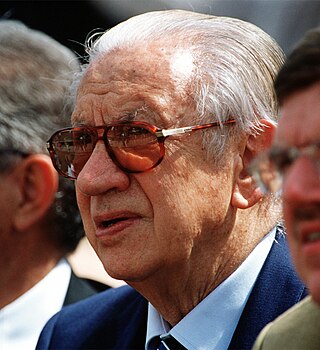
Juan Antonio Samaranch y Torelló, 1st Marquess of Samaranch was a Spanish sports administrator under the Franco regime (1973–1977) who served as the seventh President of the International Olympic Committee (IOC) from 1980 to 2001.

Jacques Jean Marie Rogge, Count Rogge was a Belgian sports administrator and physician who served as the eighth President of the International Olympic Committee (IOC) from 2001 to 2013. In 2013, Rogge became the IOC's Honorary President, a lifetime position, which he held until his death in 2021.
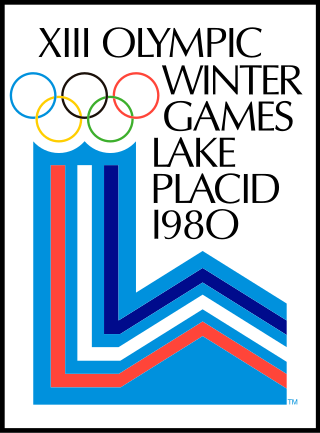
The 1980 Winter Olympics, officially the XIII Olympic Winter Games and also known as Lake Placid 1980, were an international multi-sport event held from February 13 to 24, 1980, in Lake Placid, New York, United States.

The International Olympic Committee (IOC) uses icons, flags and symbols to elevate the Olympic Games. These symbols include those commonly used during Olympic competition—such as the flame, fanfare and theme—as well as those used throughout the years, such as the Olympic flag.
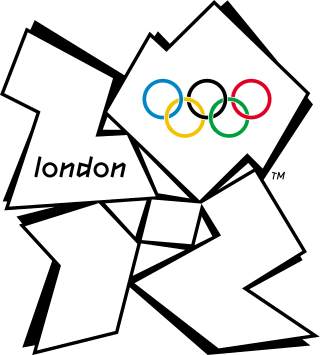
The 2012 Summer Olympics was an international multi-sport event held from 27 July to 12 August 2012 in London, England, United Kingdom. The first event, the group stage in women's football, began on 25 July at the Millennium Stadium in Cardiff, Wales, followed by the opening ceremony on 27 July. There were 10,768 athletes from 204 National Olympic Committees (NOCs) who participated in the 2012 Olympics.

Each Olympic Games has its own Olympic emblem, which is a design integrating the Olympic rings with one or more distinctive elements. They are created and proposed by the Organising Committee of the Olympic Games (OCOG) or the National Olympic Committee (NOC) of the host country. It is the responsibility of the International Olympic Committee (IOC) to approve Olympic emblems for the Olympic games. The Olympic emblems are used in promotional materials, by sponsors of the Olympics, and on the uniforms of every Olympic competitor. All emblems are the property of the IOC.
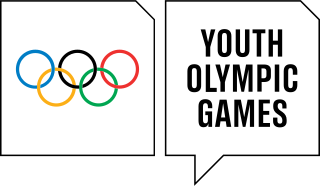
The Youth Olympic Games (YOG) is an international multi-sport event for athletes between 15 and 18 years old, organized by the International Olympic Committee. The games are held every four years in staggered summer and winter events consistent with the current Olympic Games format, though in reverse order with Olympic Winter Games held in leap years instead of Summer Olympic Games. The first summer version was held in Singapore from 14 to 26 August 2010 while the first winter version was held in Innsbruck, Austria from 13 to 22 January 2012.

The 2010 Summer Youth Olympics, officially known as the I Summer Youth Olympic Games, and commonly known as Singapore 2010, was the inaugural edition of the Youth Olympic Games (YOG), an Olympic Games-based event for young athletes. Held in Singapore from 14 to 26 August 2010, it was the first International Olympic Committee–sanctioned event held in Southeast Asia. The Games featured about 3,600 athletes aged 14–18 from 204 nations, who competed in 201 events in 26 sports. No official medal tables were published, but the most successful nation was China, followed by Russia; hosts Singapore did not win any gold medals. Most unique features of the YOG, such as mixed-NOCs teams and the Culture and Education Programme (CEP), made their debut at the 2010 Games.

The 2012 Winter Youth Olympics (YOG) were an international youth multi-sport event featuring winter events that was planned to complement the Olympic Games. It featured athletes between the ages of 14 and 18.

The 2012 Winter Youth Olympic Games, officially known as the I Winter Youth Olympic Games (YOG), were an international multi-sport event for youths that took place in Innsbruck, Austria, on 13–22 January 2012. They were the inaugural Winter Youth Olympics, a major sports and cultural festival celebrated in the tradition of the Olympic Games. Approximately 1100 athletes from 70 countries competed. The decision for Innsbruck to host the Games was announced on 12 December 2008 after mail voting by 105 International Olympic Committee (IOC) members. Innsbruck is the first city to host three winter Olympic events, having previously hosted the 1964 Winter Olympics and the 1976 Winter Olympics.
Singapore will host the inaugural 2010 Youth Olympic Games (YOG). According to the Singapore National Olympic Council (SNOC), Singapore's concept fully embraces the Olympic values, with fully integrated Sports, Education and Culture programmes to engage and inspire young people. As a diverse community with many languages and cultures, Singapore is 'united and committed as a country', in its enthusiasm to host the 2010 Youth Olympic Games.

The 2014 Summer Youth Olympics, officially known as the II Summer Youth Olympic Games Chinese: 第二届夏季青年奧林匹克运动会; pinyin: Dì'èrjiè Xiàjì Qīngnián Àolínpǐkè Yùndònghuì, and commonly known as Nanjing 2014, were the second Summer Youth Olympic Games, an international sports, education and cultural festival for teenagers, held from 16 to 28 August 2014 in Nanjing, China. These were the first Youth Olympic Games held in China, making it the first country to host both regular and Youth Olympics following the 2008 Summer Olympics in Beijing.
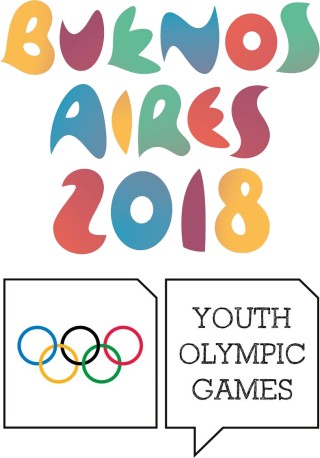
The 2018 Summer Youth Olympics, officially known as the III Summer Youth Olympic Games, and commonly known as Buenos Aires 2018, were an international sports, cultural, and educational event held from 6 to 18 October 2018 in Buenos Aires, Argentina. They were the first Youth Olympic Games held outside of Eurasia, and the first Summer Games held outside of Asia and the first to be held in the Western and Southern hemispheres. It was the second Olympic Games held in South America after the 2016 Summer Olympics in Rio de Janeiro, Brazil.

The 1998 World Youth Games was the first international multi-sport event of its kind. More than 7,500 young athletes representing 140 countries of the world participated in this event. The Games took place in Moscow, Russia from July 11 to 19, 1998.
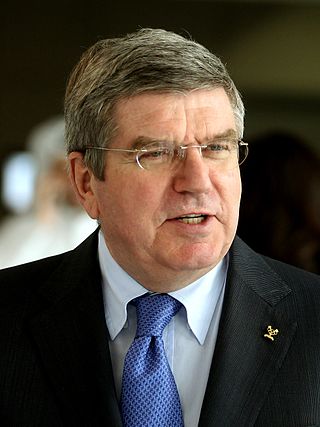
The president of the International Olympic Committee is head of the executive board that assumes the general overall responsibility for the administration of the International Olympic Committee (IOC) and the management of its affairs. The IOC Executive Board consists of the president, four vice-presidents, and ten other IOC members; all of the board members are elected by the IOC Session, using a secret ballot, by a majority vote.
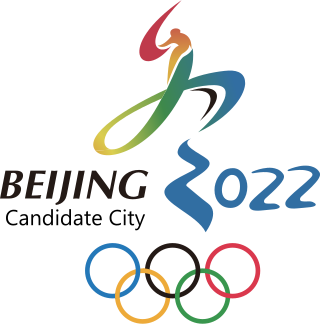
A total of six bids were initially submitted for the 2022 Winter Olympics. Four of the bids were subsequently withdrawn by 1 October 2014, citing either the high costs of hosting the Games or the lack of local support, leaving Almaty, Kazakhstan and Beijing, China as the only two remaining candidate cities. Beijing was then elected as the host city at the 128th IOC Session in Kuala Lumpur, Malaysia, on 31 July 2015.

The bidding for the 2014 Summer Youth Olympics Games began on 2 February 2009, with cities presented their candidature files. In the competition to host the inaugural Youth Olympic Games in 2014, the IOC list three cities in December 2009. Guadalajara officially withdrew the bid on 22 January 2010, two weeks after the release of the IOC evaluation commission's report and less than three weeks before the final vote in Vancouver.
References
- ↑ Olympische Jugendspiele - Johann gegen Jacques. Der Spiegel . 16 November 2009. Retrieved 15 May 2011.
- ↑ Verspätetes Präsent des IOK. Neue Zürcher Zeitung . 30 December 2010. Retrieved 15 May 2011.
- ↑ Olympischer Frieden [ permanent dead link ]. Frankfurter Allgemeine Zeitung . 27 December 2010. Retrieved 15 May 2011.